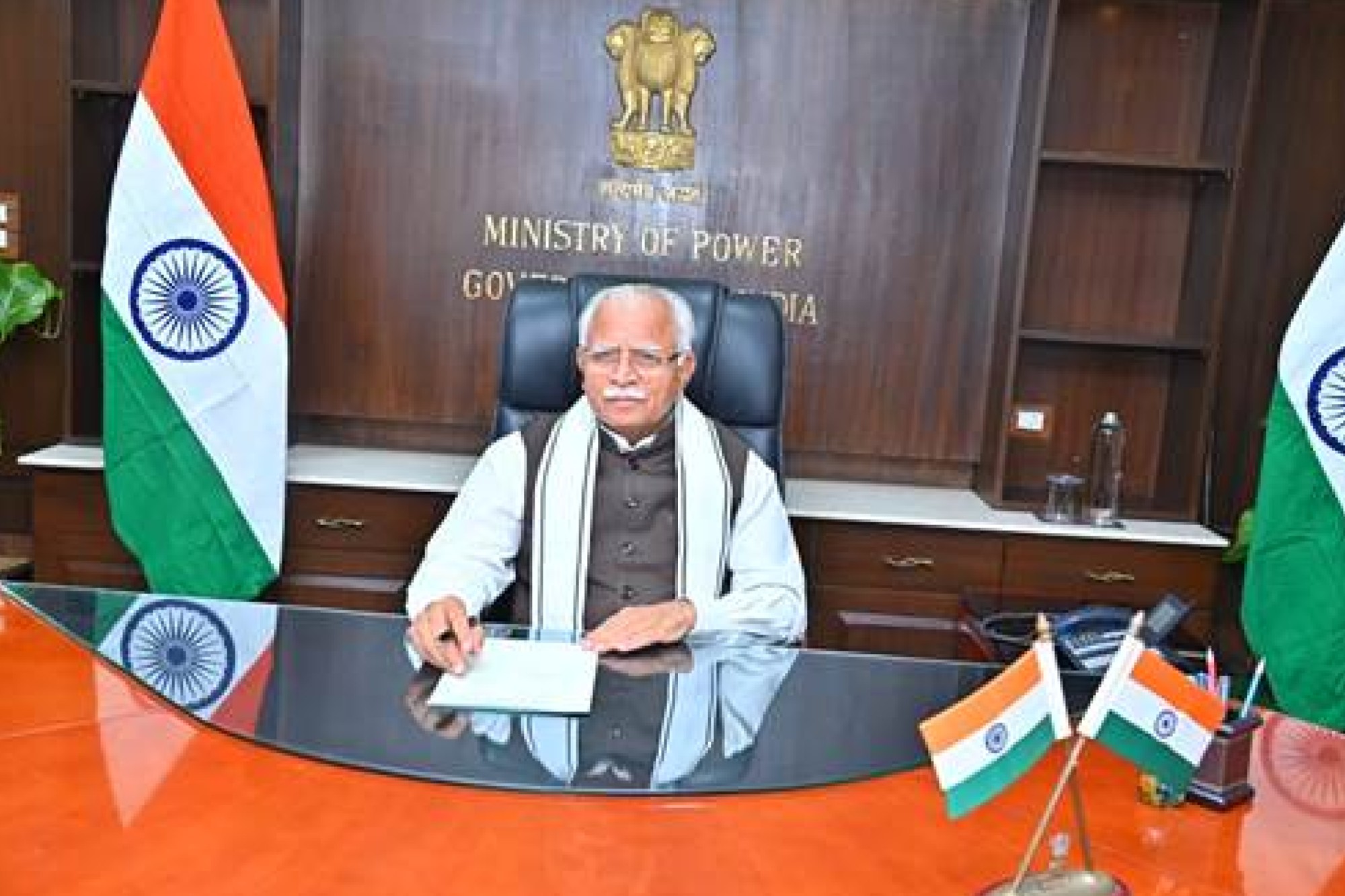Manohar Lal Khattar takes charge as Union power minister
By EPR Magazine Editorial June 12, 2024 12:07 pm IST
By EPR Magazine Editorial June 12, 2024 12:07 pm IST

Newly appointed minister oversees power supply amid record demands, focuses on capacity expansion and storage solutions.
Manohar Lal took charge as Union Minister of Power, in addition to his existing role as Minister of Housing and Urban Affairs, at Shram Shakti Bhawan today. Secretary of the Ministry of Power, Pankaj Agarwal, along with senior officials, welcomed the Minister. The former Minister of Power, Raj Kumar Singh, extended a warm welcome to his successor, with Minister of State for Power, Shripad Yesso Naik, also present at the occasion.
The Union Minister was briefed by senior officials of the Ministry of Power and, after taking charge, conducted a review meeting regarding the power supply position in the country. On his first day in office, newly appointed power minister Manohar Lal Khattar monitored the country’s power supply situation and discussed the addition of power generation, transmission, and battery storage capacities in a meeting with officials and chiefs of public utilities.
Khattar assumed charge of the ministry in the presence of his predecessor, Raj Kumar Singh. Minister of State for Power, Shripad Yesso Naik, was also present on the occasion. Two officials familiar with the matter said that during the first meeting post-assumption of charge, the minister discussed capacity addition with a focus on battery storage.
“The meeting focused on transmission capacity addition, storage capacity addition, and also generation capacity addition. We talked about battery storage, essentially storage capacity,” said one of the two people mentioned above. Capacity addition across segments has gained significance as the government aims to meet rising power demand. The Centre plans to set up an additional 80 GW of coal-fired capacity by 2032.Expansion and upgrading of the transmission network are key with the government’s ambitious plan to add 500 GW of non-fossil generation capacity by 2030 and integrate green capacity into the grid. Further, battery storage is essential for storing renewable power, which is intermittent, and for maintaining grid stability. Last September, the Union Cabinet approved ₹3,760 crore in viability gap funding for battery energy storage systems.
Khattar, the Lok Sabha member from Karnal, assumes charge of the power ministry at a time when power demand in the country is very high due to soaring temperatures. The peak demand hit a record high of 246 GW on May 29, 2024, and is expected to reach 260 GW this summer. Ensuring uninterrupted availability of power will be an important and immediate responsibility of the minister.
We use cookies to personalize your experience. By continuing to visit this website you agree to our Terms & Conditions, Privacy Policy and Cookie Policy.